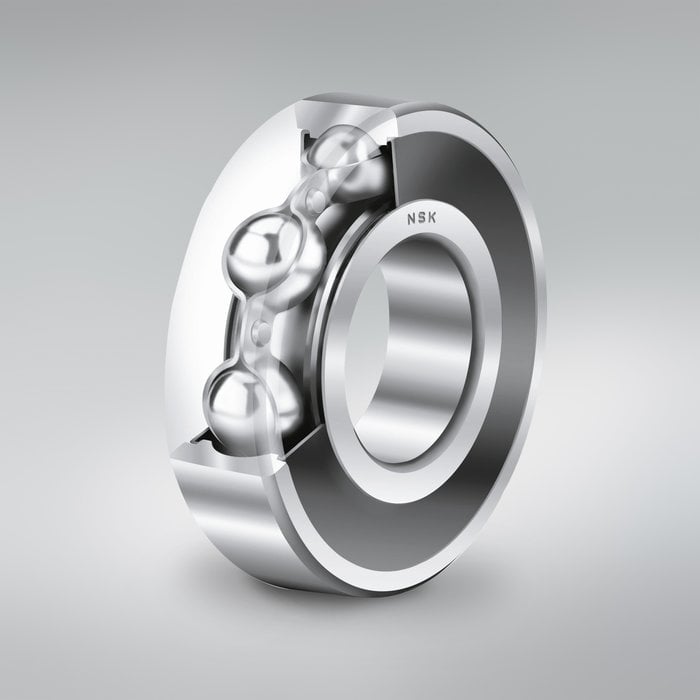www.magazine-industry-usa.com
23
'17
Written on Modified on
NSK low-friction ball bearings increase energy efficiency
The use of low-friction ball bearings in drive systems serves to increase energy efficiency and reduce operational noise. Bearings of this type will also reduce heat generation, which in turn helps to extend service life. Based on concepts such as optimised raceway geometry and special sealing concepts, NSK has developed several series of ball bearings that offer significantly lower friction characteristics.

When looking to design energy-efficient drive systems, engineers should always ensure that they take the rolling bearings into account. The inherent friction which occurs from the motion of the rolling elements on raceways, as well as the contact of conventional seals, can compromise drive efficiency. As a result, NSK low-friction rolling bearings feature, among other attributes, proprietary geometry that reduces the contact surface between the balls and raceways. In addition, fibreglass-reinforced polyamide cages and high-performance lubricants can provide a significant contribution to lowering frictional torque.
Production processes are another important factor in the creation of low-friction ball bearings. Here, any roughness in the bearing raceway is likely to impair lubrication, increase running noise and generate greater friction. This is why the raceways of NSK ball bearings undergo a bespoke honing process that is designed to deliver an extremely smooth running surface.
With regard to seal technology, the non-contact labyrinth design developed and patented by NSK ensures efficient sealing properties without increasing frictional torque or operating temperature. This is vitally important in applications where any loss of performance is deemed to be particularly detrimental. NSK ball bearings featuring non-contact labyrinth seals offer high-speed capability comparable with shielded bearings, while at the same time providing important protection in harsh operating environments. A variety of other sealing options are available depending on application requirements.
Market demand for low-friction ball bearings comes from sectors such domestic appliance, especially washing machines, where manufacturers declaring a favourable efficiency class enjoy a distinct competitive edge. The automotive industry is also making marked strides towards increasing the energy efficiency of its on-vehicle drive mechanisms. By way of example, the recent adoption of low-friction deep groove ball bearings at an NSK customer made it possible to reduce frictional torque by 47% in comparison with commonly-used standard ball bearings of the same type.
To find out more about low-friction bearing technology, including the latest developments, NSK has made available a PDF available for download as part of its ‘Technical Insights’ series: www.nskeurope.com/downloads/literature_bearing/TI_E_0016_final.pdf

